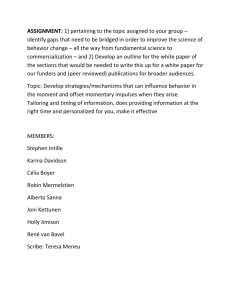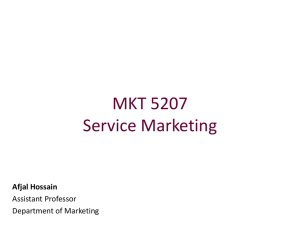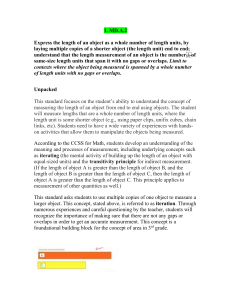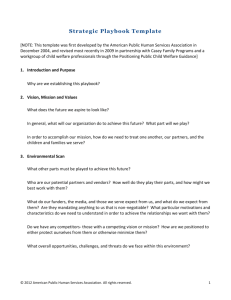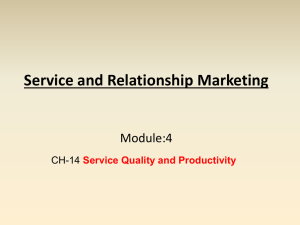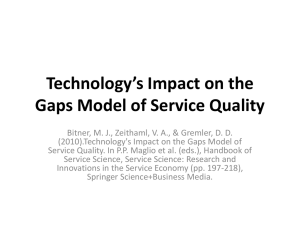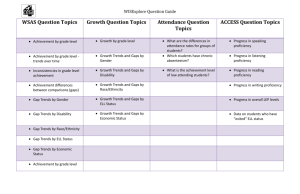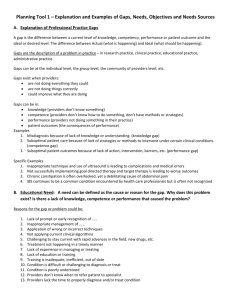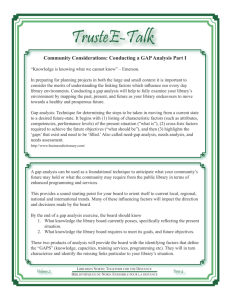Chapter 2
advertisement
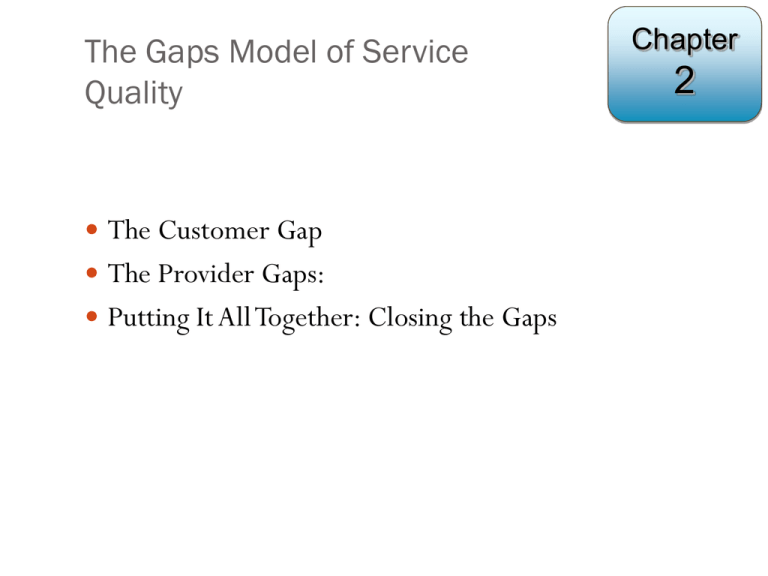
The Gaps Model of Service Quality The Customer Gap The Provider Gaps: Putting It All Together: Closing the Gaps Chapter 2 The Customer Gap Definition of Gap Analysis Formal means to identify and correct gaps between ________________ levels and ________________ levels of performance Used by organizations to analyze certain processes of any division of their organization Key Factors Leading to the Customer Gap Customer Gap Customer Expectations Provider Gap 1: Not knowing what customers expect Provider Gap 2: Not selecting the right ________________ Provider Gap 3: Not delivering to service standards Provider Gap 4: Not matching ________________ Customer Perceptions Gaps Model of Service Quality ________________ : difference between customer expectations and perceptions Provider Gap 1 (________________): not knowing what customers expect Provider Gap 2 (________________): not having the right service designs and standards Provider Gap 3 (________________): not delivering to service standards Provider Gap 4 (________________): not matching performance to promises Provider Gap 1 CUSTOMER Expected Service Perceived Service COMPANY Gap 1: The Listening Gap Company Perceptions of Consumer Expectations Key Factors Leading to Provider Gap 1 Provider Gap 2 CUSTOMER COMPANY Customer-Driven Service Designs and Standards Gap 2: The Design and Standards Gap Company Perceptions of Consumer Expectations Key Factors Leading to Provider Gap 2 Provider Gap 3 CUSTOMER COMPANY Service Delivery Gap 3: ________________ Customer-Driven Service Designs and Standards Key Factors Leading to Provider Gap 3 Provider Gap 4 CUSTOMER COMPANY Gap 4: The Communication Gap External Service Delivery Communications to Customers Key Factors Leading to Provider Gap 4 Gaps Model of Service Quality Ways to Use Gap Analysis Overall Strategic Assessment: How are we doing overall in ___________________________________? How are we doing overall in closing the four company gaps? Which gaps represent our ________________ and where are our ________________? Ways to Use Gap Analysis Specific Service Implementation Who is the customer? What is the service? Are we consistently meeting/exceeding customer expectations with this service? If not, where are the gaps and what changes are needed? (Examine gaps 1-4 for this particular service.)
